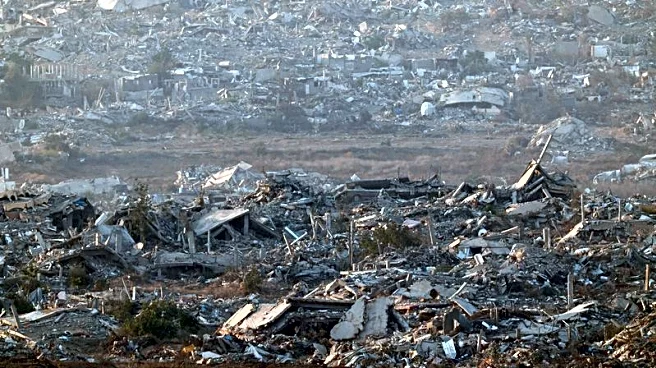What's Happening?
The BBC has come under scrutiny after its Executive Complaints Unit (ECU) ruled that a presenter violated editorial guidelines by referring to Hamas as a 'terror group' during a broadcast. The incident occurred on June 15, and the ruling was published recently, sparking debate over the broadcaster's language policies. The BBC's guidelines stipulate that the term 'terrorist' should only be used with attribution, such as quoting others. This policy aims to maintain impartiality, especially in sensitive geopolitical contexts. The BBC often describes Hamas as 'designated as a terrorist organization' or a 'Palestinian armed group.'
Why It's Important?
The BBC's decision to censure itself highlights the challenges media organizations face in maintaining neutrality while reporting on contentious issues. The language used to describe groups like Hamas can influence public perception and international relations. The ruling may affect how other media outlets approach similar situations, potentially leading to changes in editorial policies. The BBC's stance has drawn criticism from political figures and community leaders, emphasizing the ongoing tension between journalistic objectivity and public expectations.
What's Next?
The BBC's management and editorial teams are expected to review the ECU's findings and consider any necessary adjustments to their reporting practices. This incident may prompt further discussions within the media industry about the language used in reporting on terrorism and conflict. Stakeholders, including government officials and advocacy groups, may continue to pressure the BBC to align its language with official designations, potentially leading to policy revisions or public statements from the broadcaster.











